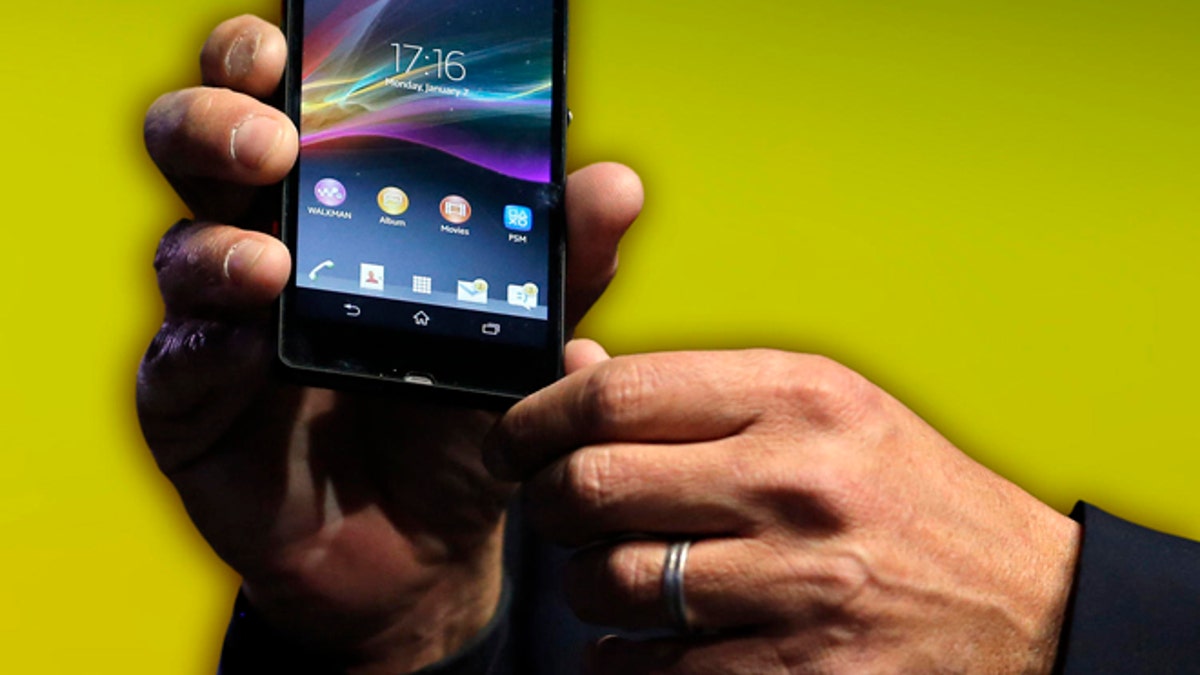
(AP Photo/Jae C. Hong)
Will technology save us and save the economy or is it just spinning its wheels and contributing to stagnant wages and intellectual torpor?
It's a popular dinner-time discussion among tech CEOs, venture capitalists, and entrepreneurs these days. The concern is that with all the hype about the democratization of information, smart phones, wearable computing, and ever faster processors, not a lot has actually been accomplished recently. Playing Angry Birds while waiting in line or posting pictures of your dinner on Facebook isn't doing much to advance the human race -- or eliminate famine, war, or poverty.
At a recent panel discussion between Marc Andreessen (he of Netscape and now mega venture capitalist) and Peter Thiel (he of PayPal and another big tech investor) the issue was raised again. What was most interesting about the discussion was the entrenched mythology that Silicon Valley continues to labor under. It might be why more programmers off highway 101 seem to be working social networking pages rather than figuring out how to make more efficient solar panels.
Myth 1: The Media Bashes Technology.
One interesting theme of the discussion was how we -- the media -- are all a bunch of skeptical, naysaying Luddites. Andreessen said he was experiencing schadenfreude as The New York Times struggled with the Internet age, something the paper ridiculed back in the early '90s.
Actually, the reporter Andreessen singled out -- Peter Lewis -- wrote a lot of the early positive stories about the potential of the Web as "a powerful new communications tool -- inexpensive, open 24 hours-a-day and global in reach" even back in June 1994. (Full disclosure: I contribute to The New York Times, and I knew Mr. Lewis when he was at the paper.) He also wrote about earlier technological innovations, such as external modems, Next Computer and Compaq's first laptop.
Rather than making fun of innovations and inventions, generally, the media has hyped, rather than harmed technology (and encouraged investment along the way). That said, Windows 8 still really stinks, wireless carriers charge too much, and Angry Birds is a time sink.
Myth 2: Technology Good, Hollywood Bad.
If the movie industry would just make some positive movies about technological advances, it would incite people to work harder toward making a better future. We need more encouragement, was Thiel's message about the bad rap Hollywood has been giving Silicon Valley.
It's true that we love dystopian, blow-up-all-the-robots movies. But the truth is, we've always loved those stories. Today's sci-fi blockbusters are often derived from the science fiction stories that people who head up today's tech firms grew up with in the '50s and '60s. Isacc Asimov and Philip K. Dick form the foundation of yesterday's and today's digital fantasies, and those futuristic visions (no matter how disastrous), rather than discouraging budding young scientists, actually has encouraged them.
Myth 3: Technological Change is Rapid.
We should certainly question whether the high-tech business is headed in the right direction. Businesses have to place bets, financial and otherwise, and it's important to place them carefully and expect failure.
However, the effects of a technology can take time. Andreessen used this point to defend today's technological developments, such as digital communications tools. He's got a right to think so.
When Microsoft was moved to squash a start-up called Netscape (Andreessen's company) back in 1994, it was because it was thought that Web-based services like word processors and online storage would kill the PC software business. For various reasons -- anti-trust trials included -- it's taken nearly 20 years for that to start happening. Some think it's already happened. Theil referred to Microsoft as part of the digital rust belt, and this week '80s software stalwart Adobe caved, putting PhotoShop online for $50 a year.
Myth 4: Twitter Will Save the World.
Andreessen and Theil both think Twitter is the future -- well, at least for the next decade. However, their reasons differ. Andreessen believes services like Twitter are world-changing. Theil is considerably less enthusiastic but believes Twitter workers will have "great job security for the next decade ... perhaps a lot more than people working at The New York Times." (One wonders what people will tweet about if there are no New York Times stories to tweet about.)
Unfortunately, Twitter isn't quite the influencer that they may think. In countries experiencing political upheaval, despotic governments can and do shut it down with a push of a button. Demographics are not helping Twitter, either, with most 20-somethings regarding the service as something for old people.
The brand is entering the ad market in a major way this month, which may further dilute its authority. Many companies have already been "advertising" for free on Twitter (so-called social engineering), pretending to be users of products extolling the virtues of their widgets. The value of this free digital communications tool seems even more questionable when one considers that 140 characters can trick gullible Wall Street firms into sending the market plunging.
Most myths are used to prop up the establishment and maintain the status quo. Silicon Valley's mythology seems no different. Perhaps it's time to abandon those myths, be a little less "social," and look toward solving our long-term problems. Or maybe I'm just being negative.
Follow John R. Quain on Twitter @jqontech or find more tech coverage at J-Q.com.
